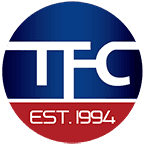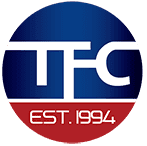In today’s financial landscape, online title loans have emerged as a convenient solution for individuals seeking quick access to cash. However, amidst the accessibility and convenience, borrowers must remain careful against potential scams orchestrated by dishonest online lenders. These lenders often target vulnerable individuals facing urgent financial needs, taking advantage of their desperation and lack of awareness about fraudulent practices.
Understanding online title loan scams is important before borrowing. Scammers often lure borrowers with promises of low-interest rates or instant approvals without conducting credit checks.
Title Loan Fraud Protection
They may request sensitive personal information, such as Social Security numbers or bank account details, under false pretenses, leading to identity theft and financial loss.
To safeguard yourself against online title loan fraud, consider implementing the following comprehensive strategies:

- Thoroughly Research the Lender: Before engaging with any online lender, conduct extensive research. Look for reviews and testimonials from previous borrowers to gauge the lender’s reputation. Legitimate lenders will provide clear contact information, including a physical address and phone number. Verify the lender’s credentials and standing with regulatory bodies such as the Department of Financial Institutions or Consumer Affairs in your state.
- Read and Understand Terms and Conditions: Exercise caution when reviewing loan agreements. Scrutinize the terms and conditions meticulously, focusing on interest rates, fees, repayment schedules, and penalties for default. Avoid signing any document without fully understanding its implications.
- Avoid Upfront Costs: Reputable lenders do not demand upfront payments, especially for loan approval. Be wary of lenders who request application fees or other charges before disbursing funds. Such requests are often indicative of fraudulent activities.
- Verify Lender’s Identity and Legitimacy: Before sharing any personal information, verify the lender’s identity and legitimacy. Ensure that the lender’s contact details are verifiable, and avoid transacting with entities that use generic email addresses or lack a physical address.
- Exercise Caution with Unsolicited Offers: Beware of unsolicited loan offers via email, text message, or phone calls. Reputable lenders do not engage in aggressive marketing tactics or reach out to potential borrowers without consent. Treat unexpected loan offers with skepticism and conduct thorough background checks before proceeding.
- Ensure Website Security: When applying for an online title loan, prioritize security. Verify that the lender’s website is secure by checking for the padlock icon in the address bar and ensuring that the URL starts with “https://”. Secure websites encrypt sensitive data, reducing the risk of unauthorized access.
If you suspect that you have fallen victim to an online title loan scam, take immediate action:
- Contact your bank or credit card provider to block any further transactions with the fraudulent lender.
- Report the incident to your state’s Department of Financial Institutions or Consumer Affairs to initiate an investigation.
- Consider seeking legal advice from a consumer protection lawyer to explore potential remedies and recourse options.
Frequently Asked Questions About Online Title Loan Fraud Protection
- How can I protect myself from online title loan fraud? To protect yourself from online title loan fraud:
- Verify the lender’s credentials: Ensure the lender is licensed to operate in your state and has a reputable track record.
- Read reviews: Check customer reviews and ratings of the lender to gauge their reliability.
- Avoid upfront fees: Legitimate lenders typically do not ask for upfront fees before approving a loan.
- Secure website: Look for a secure website with HTTPS and a privacy policy to safeguard your personal information.
- What should I do if I suspect online title loan fraud? If you suspect online title loan fraud:
- Contact your state’s financial regulatory agency to report the issue.
- File a complaint with the Consumer Financial Protection Bureau (CFPB) or the Federal Trade Commission (FTC).
- Monitor your bank accounts and credit reports for any unauthorized activity.
- Are there warning signs of potential online title loan scams? Yes, warning signs of online title loan scams include:
- Unsolicited loan offers with high-pressure sales tactics.
- Requests for sensitive personal information, such as your Social Security number or bank account details, before approval.
- Lack of transparency regarding loan terms, fees, or repayment conditions.
Quote from Daniel Joelson, Consumer Finance Expert: “Protecting yourself from online title loan fraud requires diligence and awareness. Always verify the legitimacy of lenders, read reviews, and never provide personal information unless you are confident in the lender’s credibility.”
Conclusion Abut Title Loan Fraud
In conclusion, while online title loans offer a quick financial solution, they also pose inherent risks due to the prevalence of fraudulent activities.
By adopting a proactive approach, conducting thorough research, and exercising caution throughout the borrowing process, you can protect yourself from online title loan scams and secure the financial assistance you need responsibly.
With so many offers of title loans, it is difficult to know who is the right lender for you. We will be your title loan broker.
We will make sure that you are with a trustworthy lender, and that you will get the best car title loan, with the lowest interest rate, and maximum money.


